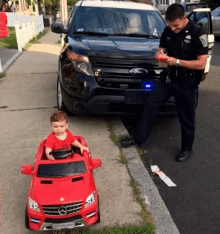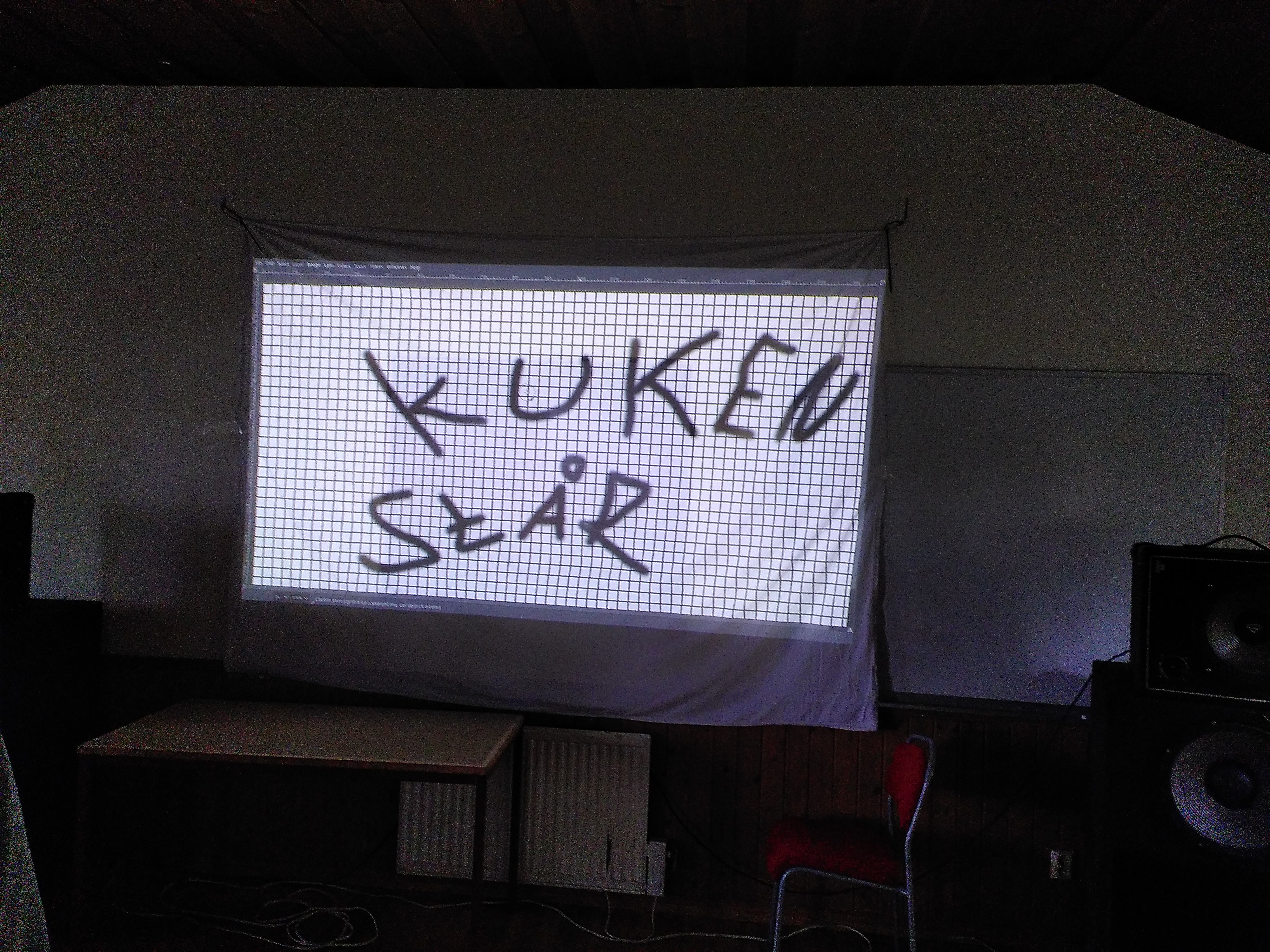I baby talked my kids (now it’s Brain Rot). I also talk to them like an adult. I’ve always encouraged them to ask questions when they don’t understand something. My 9-year-old is not shy about stopping mid-conversation and asking what a word or phrase means.
If you treat your kids like an adult they grow up to be one. We see plenty of example of people who are of legal age acting like children. Now you know why.
It definitely works. They’ll grow up way faster. Like they’ll be out of your life 15 YEARS faster!
When my toddler son hit his sister, instead of giving him a ‘talking to’ like the parinting book suggested, I just called the cops. Now he’s in federal prison all on his own! I’m so proud of him. 🥰
As with most advice regarding early childhood development, your mileage may vary.
Baby-talk is a universal human phenomenal and almost certainly plays an important role in helping kids learn language.
The implication that not using baby talk somehow unlocks rapid development of language is simply not true.
Idk man. There’s this 3yr old girl that’s a child of one of our family’s friends. She’s pretty expressive with her vocabulary. Like i can have full blown conversations with this girl without dumbing much down, and i think that might be due to her parents’ pedanticalness.
pedanticalness
pedanticness … OOOOOHHHHH!

Pedanticness is a noun that is considered obsolete and was only used in the mid-1600s.
I am only giving you a hard time bc (1) it’s funny, all the more so bc (2) you are the police of these matters! :-D
Pedanticness is a noun that is considered obsolete and was only used in the mid-1600s.
Erm, what can i say. I’m a connoisseur of the archaic.
I am only giving you a hard time because* (1) it’s funny, all the more so because (2) you are the police of these matters! :-D
You don’t wanna get on my bad side pal👮😎🔫
Oh no, I’m in trouble now!

you better watch out for the pedantry
Children pick up language at different rates. But also, while most kids learn words and build up, some learn to deploy whole chunks.
My cousin could say “Excuse me daddy could I please have a cookie?” at like 2 iirc. It sounds very advanced when you hear it, but she couldn’t, for example, replace ‘a cookie’ with ‘that’ or direct the request to me rather than her dad.
Once kids have learned more and more chunks they can sound very proficient, but it’s still just normal child language acquisition. Of course people gifted in language can happen too.
Also, no one is mentioning that there is still a significant amount of “translating” that has to happen. My kids all picked up language pretty quickly, but unless you are familiar enough with their specific pronunciation and vocabulary, it still sounds like baby talk to outsiders.
For example, last night when I got my 2yo out of the bath, he asked me for help putting on his favorite pajamas, if he could have a cookie, and asked to watch his favorite music video before bed, all in one sentence. But if you didn’t know he pronounces pajamas as “comfy cozies,” cookies are called “treat from under the stairs” and “hear wheelie rainbow neckshun” means watching Willie Nelson’s cover of “Rainbow Connection,” then of course it would sound like gibberish.
A baby’s babbling can express fairly sophisticated grammar and sentence structure if you meet them halfway. And frankly, making it clear that you can understand them expressing their ideas in their own words is highly valuable when it comes to raising healthy, confident kids.
I’ve had a similar experience and came to the same conclusion.
I like to answer questions as if an adult had asked them and then provide the dumbed down answer after.
That’s because she’s 3.
Baby talk is for babies.
I thought we were referring to toddlers as well. Oh well
wait, toddlers and babies are significantly different terms? i’ve been speaking english for decades and thought they were effectively just synonyms…
It’s a defined term(with variances of course), means between the age of 1 and 3. Weird definition though, really big difference between a 1 year old and a 3 years old child.
It’s very common for 3 year olds to speak very fluently already. My 2 year old niece babbles a lot but actually makes oddly complex sentences already that makes me pause.
Baby talk overemphasizes everything, including repetitions, that makes it easier for babies to actually get what you want and what all those cues are supposed to mean.
So yeah, kind of important, even though it sounds stupid.
That being said, there is a point at which kids should be taken seriously and communicated with accordingly. Some parents talk to relatively old kids like with toddlers and that can’t be healthy either.
But it’s very funny to respond to babies babbling nonsense with “yes, I see, an intriguing point.”
Same with pets! I would have long “conversations” with my vocal cat…
Kids perceive a lot more than we might think. I know my parents made lots of well-intentioned, passing comments that were nothing to them but stay with me decades later.
While I agree with you about the funniness, I worry that a kid might justifiably feel condescended to by that response and thus lose trust in the responder, an authority figure - especially if that figure is a parent, which is to say, a person they have to trust as an implicit safe figure.
I want my toddler to feel free to say anything to me, be it gibberish or a deep and well articulated philosophical point, and know that they won’t be mocked for it. That’s how they know it’s okay to explore and, if they wish to, share their thoughts. Even if their thoughts don’t make sense to me.
Teasing a kid isn’t inherently wrong, but even before they’re articulate, your response to their words - or gibberish - matters.
That stops being nonsense a lot faster than people think it does. Mothers commonly report knowing if the baby wants food, feels pain, or wants to be held very early. Then at about 6 months they’re trying to learn language, they’ll repeat sounds as best as they can. And at a year they’ll have their first word.
So, yeah a 6 month crawler should be getting full sentences but in baby tone.
Another good one is to suddenly look frightened and stammer out h-how could you know that".
This is why the baby stage is so fun and the teenage stage is so damn annoying.
You can always troll teenagers by using their words in slightly off contexts.
No way my parents did that accidentally!
This would drive teenage me crazy, fr fr on god.
No cap tho?
I’m a millennial with a gen z sister, can confirm it’s very swag.
that’s straight bussing, on cap, on cap, no god. super radical yo
Conversely, it’s also very funny to respond to self-important adults babbling nonsense with baby talk.
I think it’s both true that baby talk is good for infants and that people infantilize children for far longer than they should
There is a big difference between recoding “I am unable to do this currently because I am tied up with other work, ask me in a few hours” to “Daddy’s busy right now sweetie, maybe later?”
and
“Aww whosa sweet wittuh one! My wittle girlie so preshusss!”
I also really dislike this. Making simple noises is the kind of baby talk I can get behind. And then just using fewer words, simple words you want them to learn first. This and talking in higher pitched voices. I’m cool with all that baby talk.
But the latter feels like how parents with “fur babies” (who describe themselves as such) talk to their pets, and drives me up the wall.
Is it really universal though? I don’t recall that from my linguistics masters at all, in fact I think I recall pretty much the opposite…
I’m fairly sure that studies have shown that even birds do baby talk but it’s been a while since i read that
I thought the universal part was the tone and cadence people use when talking to small children, and not the actual words or grammar changes.
It’s why you can listen to a recording of a language you don’t know and tell if they’re talking to a baby, but there are also cultures that essentially don’t talk to them at all until they have language.
I just wonder if it’s true. It’s certainly true for many indo-european languages, but I wonder if there’s been a typological study with a representative sample of languages done for it. I’m not sure I buy it being a language univeral.
https://www.cell.com/current-biology/fulltext/S0960-9822(17)31114-4?xid=PS_smithsonian
I know I’ve read a handful of things roughly a long these line, that basically it’s probably not universal that humans simplify language for infants, but that we likely do shift how we vocalize to them.
Seems like a reasonably plausible hypothesis to me.
우리 애기 너어어무 이쁘으찌이이이
우리 애기 너어어무 이쁘으찌이이이
Tillykke med dit smukke barn!
Me, a chinese that only use one syllable word for my first 6 years: ._.
Ma?
I’d never really thought about until now, but do Chinese (specifically mandarin speaking) 3 year olds use Ma in place of the English speaking equivalent of “why” (repeated ad nauseum until the adult being questioned snaps!)?
We lived for three months in a brown paper bag in a septic tank. We used to have to get up at six o’clock in the morning, clean the bag, eat a crust of stale bread, go to work down mill for fourteen hours a day week in-week out. When we got home, out Dad would thrash us to sleep with his belt!
Luxury.
Well we had it tough. We used to have to get up out of the shoebox at twelve o’clock at night, and LICK the road clean with our tongues. We had half a handful of freezing cold gravel, worked twenty-four hours a day at the mill for fourpence every six years, and when we got home, our Dad would slice us in two with a bread knife.
You try telling that to the young people today, and they won’t believe you!
I had to roll a boulder to the top of a mountain each day. And at the top, my liver would get eaten by an eagle. Afterwards the boulder would roll down and I had to start my work all over again.
But what do I know, I only see shadows on a cave wall.
luxury!
Wow, you were lucky! I grew up only knowing one type of knife because that’s all my dad could afford. Imagine growing up in a house where the whole family had to share one knife for both bread and poop!
According to Alfred Matthew Yankovic:
There were seventy three of us living in a cardboard box.
All I got for Christmas was a lousy bag of rocks.
Every night for dinner, we had a big ol’ chunk of dirt.
If we were really good, we didn’t get dessert.
We were so poor, we use to get grandad around to decorate our Christmas tree by sneezing snot onto it.
“Bit more on this side, grandad!”
When I was your aaaaaaaage!
You had a cardboard box?!
Luxury!
When I was young …
Oh wow, deep cut! I had that buried somewhere in the back of my brain.
I’m in Malaysia. Our politicians and a good segment of our adults encourage this kind of chat, esp during the lockdown, for fear of offending the spouse. They call it the ‘doraemon voice’ and it’s as annoying as it sounds.
Damn
Right idea, wrong implementation. Try both making only cat noises.
It’s one thing to use baby talk with an infant, (hence the baby talk moniker), and another to speak that way to a child that is actually learning to form words and construct a sentence.
Use whatever voice you prefer with your pets. Dogs actually enjoy the soft sounds of baby talk. A bit of brilliant manipulation of humans by the dogs.
i’m pretty sure baby talk came about in the first place because it works, it genuinely helps infants develop and as you say pets generally enjoy it, i think the high pitch is easier for them to hear?
I won’t argue with your thought. I’m certainly no accredited expert either, just a dad that, along with my wife, raise 4 daughters and pets - mostly working hunting dogs.
My take is that baby talk is impossible to do in a loud and angry voice. And is always done in a soft and gentle tone. I have noticed that when training dogs, I’m a fan of Spaniels, that if you are speaking in a loud voice and that has angry tones, they will start to separate from you and watch you closely. Because ain’t no one wants to get yelled at. It’s kind of similar to loud sharp barking I suppose. Cats though, are generally arse holes and just don’t care…
When our Daughters were newborns, they started to make just sounds after about a month. So baby talk was was pretty much just making intelligible sounds back at them in a soft and soothing tone. As they started to actually learn and use “real” words, less baby talk and far more normal speech is used by parents I think. But children are also smart enough to know the different between the baby talk when playing peek-a-boo with daddy and then need for normal speech at other times.
I certainly don’t see baby talk to infants and small children as an issue except in rare disfunctional family situations.
ted was triggered
This sounds like something from LinkedIn.
If someone’s toddler starts talking about how AI is a paradigm shift I’m going to dropkick it
😂😂😂
At least the toddler has an excuse for parroting an idea that has virtually no semantic meaning to them-- That’s what toddlers do. The venture capitalists though…
I was non-verbal for almost the first five years, so good luck with that mister “parent of the year”.
I avoid the baby talk with my nieces and nephews after they get past one year old. My oldest nephew said I’m his favorite because I don’t talk down to him
laughs in condescending to children at a level they just don’t comprehend
Two notes from my actual coursework in education and psych; first, baby talk exists for a reason but it’s the singasong voice that matters most, especially when they’re picking up sounds. The funny thing there is you can say absolutely terrible things in a singasong voice and they will love it and remember it better.
Second, the arse in the example isn’t actually all the way wrong, using vocabulary is important especially in that second and third year. I forget the author but there’s some studies that show preschool vocabulary is directly related to parental education and they found it’s because of the vocab the parents use. We’re taking tens of thousands more words learned. Too bad I can’t remember the author, just that it was four letters (and since leaving academia, my zotero is long gone).
You are correct. I majored in educational psychology and this language development in children has always been a special interest of mine.
Baby talk is like beacon to the baby, it tells them that “This is for YOU, pay attention!”. The baby hears and learns the intonations, patterns and the rhythms of the language. It’s importance cannot be downplayed.
A toddler can learn ~50 new words every day, so using normal speech is naturally important as well. But there is no need to try to overdo it. The mind of a small child is a massively powerful and superfocused “learning machine”, although it isn’t often apparent in their behaviour ;)
Reading to children is especially beneficial to language development. It enriches the vocabulary and introduces common patterns and rhythms of expression. And the pictures in books help to create connections between ideas and words.
The pace of language development is highly individual and forcing it is most likely useless. Children will learn what they can, at their own pace.
Every one of my own children were able to use polynomial sentences and past and future tenses before they were three. We never tried to accelerate their learning in any way, they just picked it up. On the other hand, my friend’s kid did the normal baby talk phase and then remained completely mute until the age of four. One day he just opened up and said to her mom in a clear voice: “Mom, could you give me some milk, I’m thirsty.” And he spoke normally ever since.
One advantage of quick language development is it’s effect on memory. A child that learns complex language skills early is more likely to form lasting memories of their early childhood. It may be that the memories can be stored more effectively and recalled more easily when the child is able to bind the experiences to words that can be used to express them.
This is a very fascinating subject.
Our 2 year old granddaughter carries on full conversations. Your kid is behind. Lol
I’m told I was speaking full sentences by my first birthday, so tell your kid I said “get gud scrub.”
My cousin does the “no baby talk” things and it has pretty good results. Their kids are sharp, but of course not in a Twittiot way. Just in a “get good grades and communicate coherently” way.
My wife and I do the same, and the results have been great. An old friend of mine met my daughter for the first time when she was two and a half, and she just walked right up to him and says, “Hello. My name is _____. It’s very nice to meet you.”
When my current two-year-old is in a bad mood, we’ll ask him if he’s being a curmudgeon, and he’ll say “No, I’m not being a curmudgeon.” They speak in full sentences because my wife and I speak in full sentences. They use big words because we use big words.
On the other hand my daughter is five now and still thinks it’s pronounced “breafixt” instead of “breakfast”, and we don’t correct her because it’s adorable. So we still have fun with it.
I don’t think any of this means they’re geniuses or are guaranteed success later in life or anything. They’re probably both gifted, but that just means they’re a couple years ahead. A four-year-old who talks like a six-year-old is a great parlor trick, but a twenty-year-old talking like a twenty-two-year-old isn’t going to give them a big leg up. That’s why I like to get all my bragging in now.



















